The American Cancer Society hosted their Making Strides Against Breast Cancer 5k at Sacramento State on Oct. 27 successfully reaching their $600,000 goal.
Teams of families, friends and colleagues came together to support one cause, saying ta-ta to breast cancer. Nearly 20,000 attendees arrived in an endless sea of pink to raise money for research, patient care, education and prevention.
The MSABC was more than a 5k, it was a pink-powered parade of perseverance with live music, costumes and a community of supporters.
Participants celebrated survivors, cheered on fighters and honored lives lost while stepping to the beat of hope and with shared commitment to ending breast cancer. The energy was contagious, as the teams took to the course.
RELATED: Thinking pink: Community rallies behind breast cancer fundraiser at Sac State
Sonya Silva, senior development manager for MSABC, led the year-long effort to plan this event. Preventing cancer in women is personal for Silva, whose own mother was diagnosed four months after she started working for the American Cancer Society 26 years ago.
“I feel like this is a very important event to save the lives of moms, sisters, grandmas, aunts and daughters,” Silva said. “When somebody comes to this event and they feel like they’re alone, they come here and see that our entire community is here supporting them.”
The American Cancer Society was founded in 1913 and has had 111 years of groundbreaking discoveries, including the link between smoking and lung cancer and the first successful chemotherapy treatment.
Donations raised over the past three decades by MSABC have gone toward research and prevention while providing a community for survivors, fighters and their support systems.
Margaret Teichert, this year’s MSABC honorary survivor, was diagnosed with breast cancer at the end of 2018 after urging doctors to check the lump she had found. Teichert beat cancer a year later.
“I gained so much perspective on everything, from bad hair days to the way that I have focused on spending my time,” Teichert said. “It’s so much easier to let the little things go and thoughtfully pursue my bucket list.”
Teichert said that anyone who feels something is wrong should advocate for themselves. Her husband echoed the sentiment, having said, “You know your own body” when medical professionals did not address her concerns.
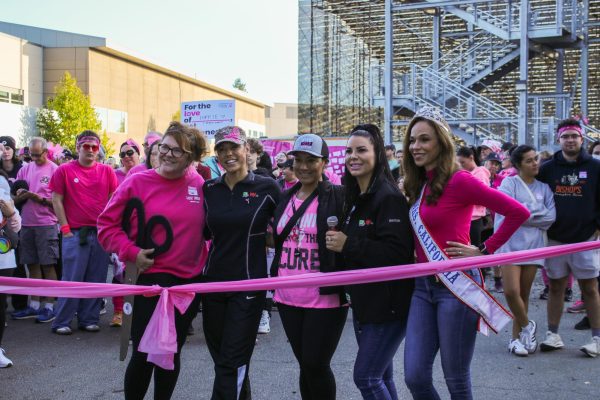
Attendees were encouraged to share their stories, creating a tapestry of triumph and courage. The message was clear: breast cancer is strong, but the community is stronger.
Kelly Nelson Fagan, a retired patient navigator for the UC Davis Cancer Center, attended the event to help increase eligibility for the Every Woman Counts and Breast and Cervical Cancer Treatment Program. The program aims to help close the gap on cancer care for Californians who may be uninsured or underinsured.
“Fewer people are losing their lives once they are diagnosed, and that’s because of research and care,” Fagan said. “But more people are losing their lives within certain communities because they don’t have access to care. That means, as a community, we have a responsibility to look after each other.”
In-Shape Family Fitness Center, the event’s title sponsor, hosted a wheel spin at their booth, offering prizes like pink yoga mats and t-shirts. They offered sunrise yoga before the walk then led a zumba session mid-morning.
Julie Cruz is a paramedical tattoo practitioner who provides realistic, 3D areola tattoos to those who have undergone a mastectomy during their cancer journey.
“Oftentimes, a lot of people say, ‘You’re a breast cancer survivor. You survived; that’s good enough,’” Cruz said. “But a lot of people forget what gets taken away from a woman: their identity, who they are.”
Cruz’s booth neighbor was Stand Tall, Aesthetic Flat Closure, an advocacy group that promotes body positivity for those who have gotten aesthetic flat closure. AFC is a procedure in which excess skin, fat and tissue is removed to create a flat chest wall after a mastectomy.
Michelle Barry and Jessica Pearce volunteer for Stand Tall and are championing an update to the Women’s Health and Cancer Rights Act of 1998, which does not include chest wall reconstruction and creates insurance issues for those seeking the procedure.
“We think there may be financial incentive on the surgeon’s part because they seem to be paid more money for implants and DIEP [Deep inferior epigastric perforator] flap reconstruction,” Barry said.
Barry said she had initially gotten breast implants a year after her double mastectomy in 2012. After having the implants for three years, she started noticing symptoms.
“I had chemo three years ago. Why do I still feel sick? I started investigating and discovered I had all the symptoms of Breast Implant Illness. I basically was walking around with all the symptoms of an autoimmune disease,” Barry said.
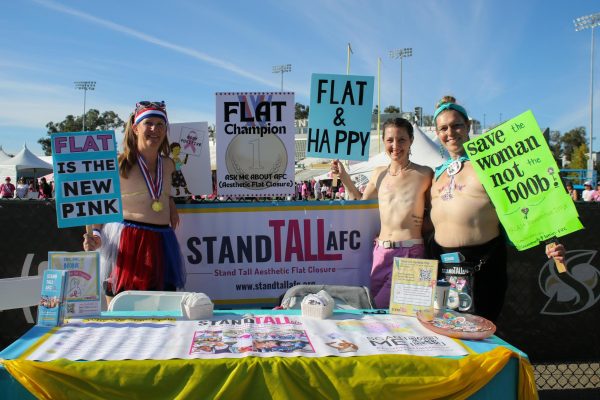
While Cruz, Barry and Pearce all promoted different treatment routes, they encouraged one another’s choices. The support provided by attendees created an environment in which women are celebrated and rallied behind, no matter what procedure they wish to take.
Alyssa Reed, program manager for the UC Davis cancer center, encourages everyone to be proactive in checking for breast cancer.
“Everyone should get to know their breast tissue. Any changes, anything that’s new or different, get it checked,” Reed said. “Breast cancer could present itself in many ways.”































































































































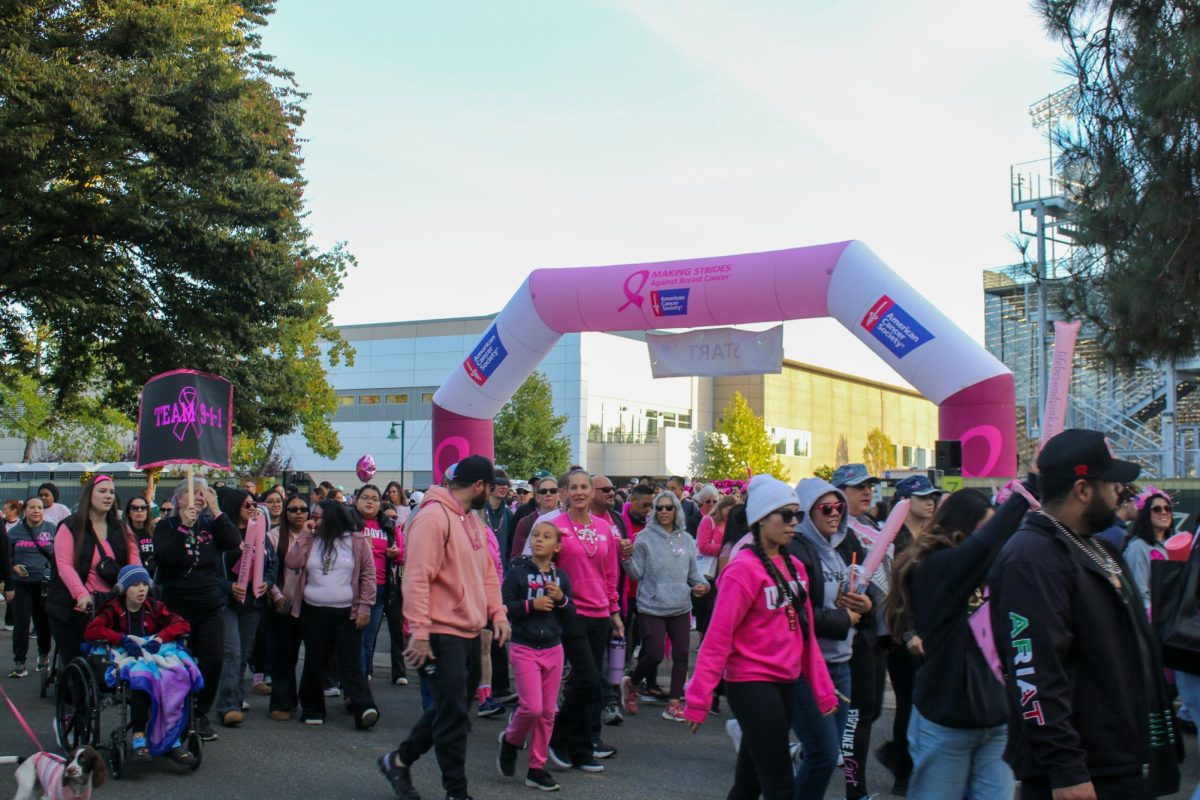
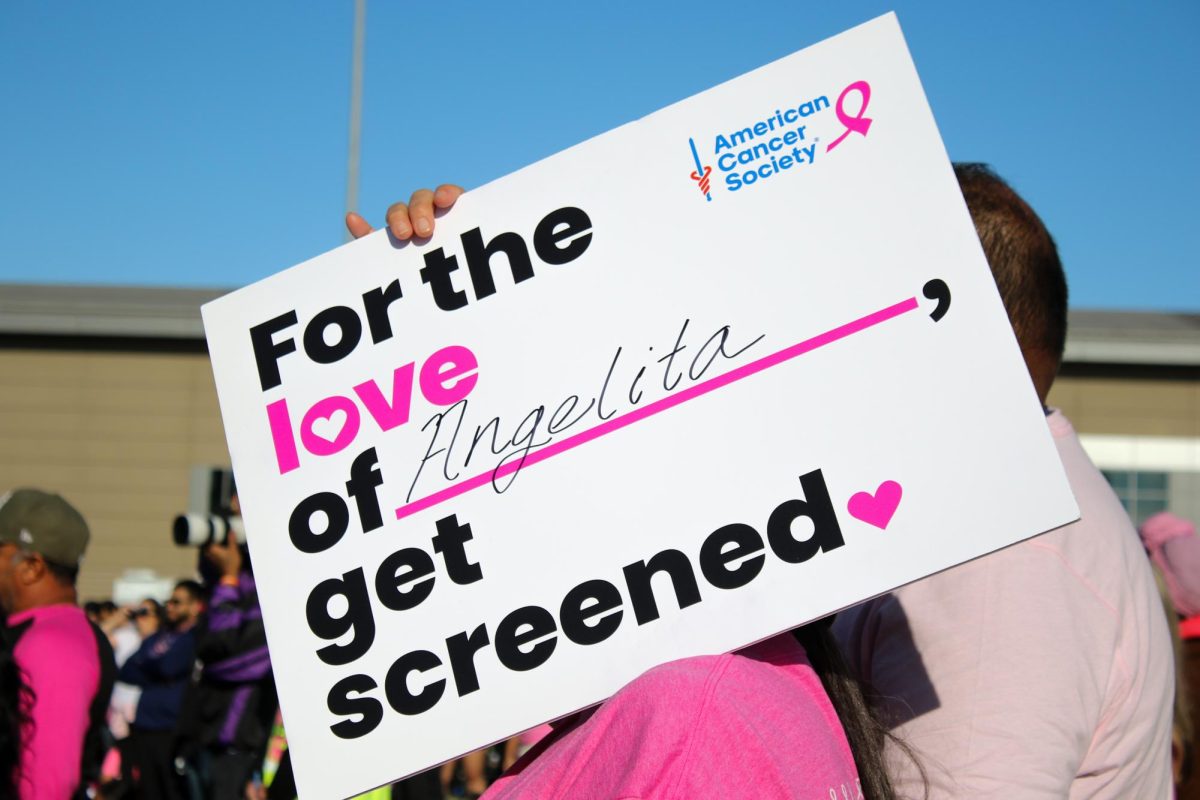
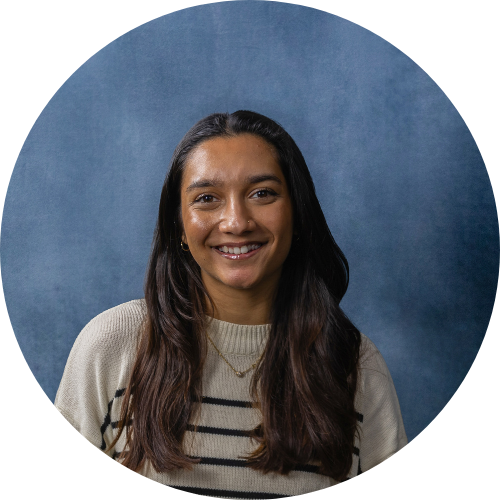
Chris • Oct 31, 2024 at 10:54 am
Nice headline!